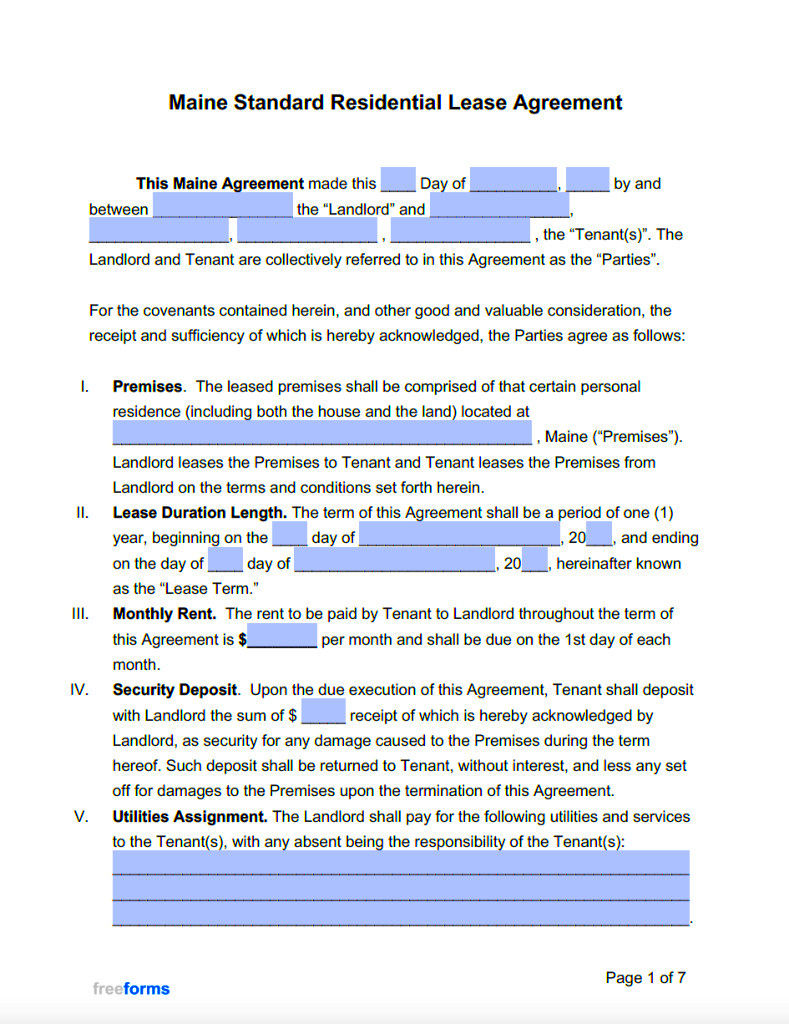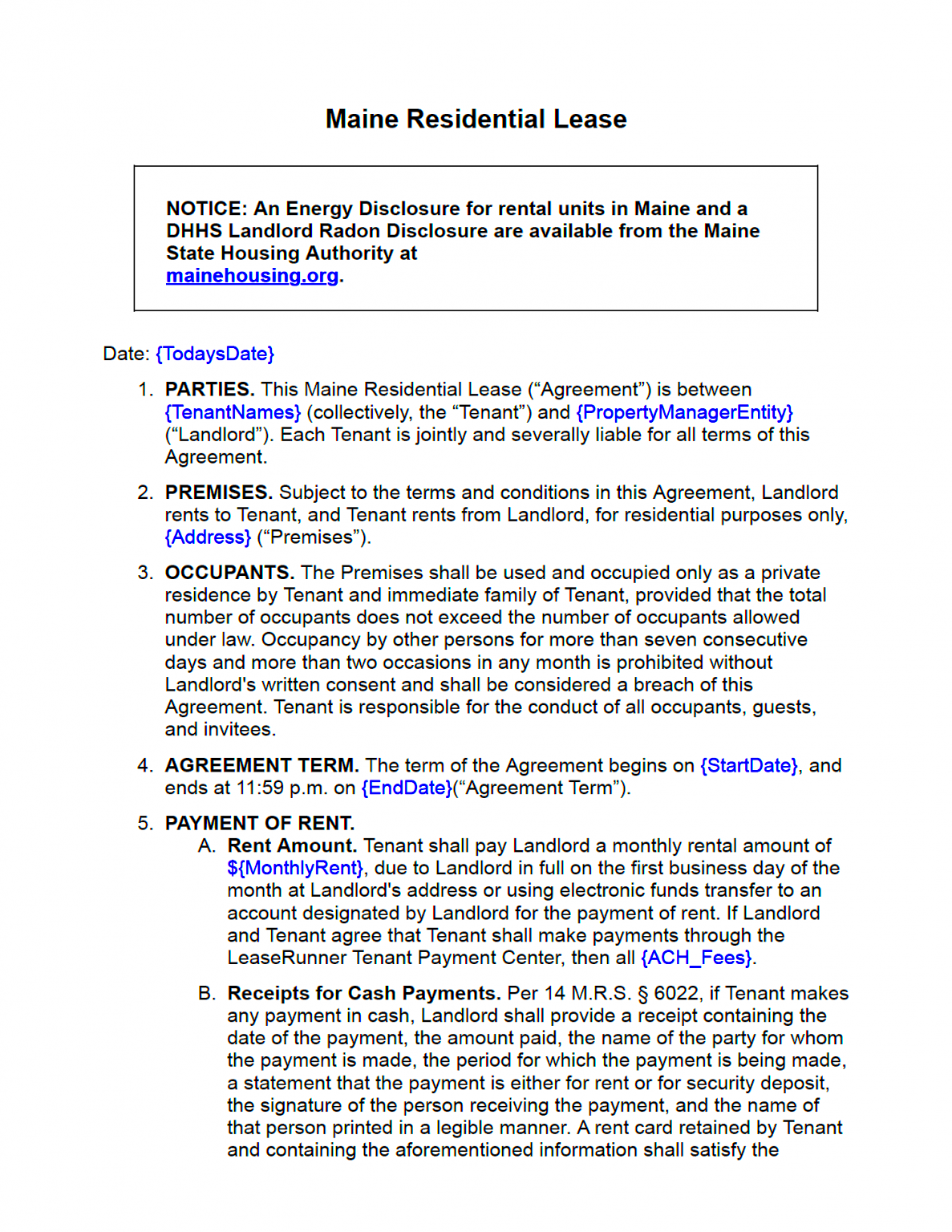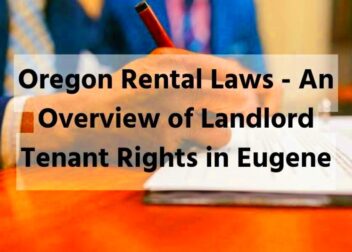Overview of Maine Rental Regulations
Renting a house or flat in Maine can go smoothly if you have a grasp of the rules. Having resided in different areas of Maine I’ve witnessed how being aware of the regulations can greatly impact the process. Maine’s rental laws aim to safeguard both landlords and tenants promoting a fair and respectful relationship. Whether you’re an incoming tenant or a property owner in Maine it’s essential to familiarize yourself with these guidelines. This article will guide you through the aspects of Maines rental regulations providing insights and practical tips to help you navigate the rental scene with ease.
Understanding Lease Agreements in Maine

In Maine lease agreements play a role in establishing the relationship between landlords and tenants. They outline the conditions of your rental, making it important to review them thoroughly. I recall signing my lease in Portland. While it felt daunting at first grasping the details of each clause was vital to prevent any future misunderstandings.
Here are some key points to consider:
- Written vs. Verbal Agreements: While verbal agreements can be legally binding, written leases are preferred for clarity.
- Lease Term: The lease will specify the length of your tenancy, whether it’s month-to-month or a fixed term.
- Rent and Payment Terms: Details about the rent amount, payment schedule, and accepted payment methods should be clear.
- Rules and Regulations: Look out for clauses on maintenance responsibilities, guest policies, and rules about property modifications.
If there’s anything in the lease that you dont understand make sure to ask questions. Having a clear grasp of the terms can help avoid issues down the road and make your rental experience more seamless.
Security Deposits and Their Rules

When it comes to renting security deposits are usually involved, but Maine has its own set of regulations regarding them. Based on my time as a renter being aware of these rules assisted me in getting my deposit returned when my lease ended.
Here’s a rundown on security deposits in Maine that you should be aware of.
- Maximum Amount: Landlords can charge up to two months’ rent as a security deposit. Anything beyond this is not allowed.
- Return of Deposit: Maine law requires landlords to return the security deposit within 21 days after the tenant moves out, minus any deductions for damages beyond normal wear and tear.
- Written Notice: If there are any deductions from the deposit, the landlord must provide a written explanation along with the remaining amount.
- Documentation: Keeping a record of the property’s condition when you move in and out can help avoid disputes over damages.
By keeping yourself updated on these regulations you can safeguard your tenant rights and prevent any unnecessary disputes with your landlord.
Landlord and Tenant Responsibilities

Grasping your responsibilities can ease the process of renting a house in Maine. Speaking from my experience I can say that open communication and a clear understanding of your obligations are crucial for maintaining a harmonious rental relationship. Both landlords and tenants have roles to play and when these are handled effectively they contribute to a pleasant living atmosphere.
Landlords usually have a few key responsibilities to take care of. These include.
- Maintenance and Repairs: Landlords must ensure that the property is safe and habitable. This includes addressing necessary repairs promptly.
- Compliance with Health and Safety Codes: Keeping the property up to code with local health and safety regulations is crucial.
- Return of Security Deposit: Returning the security deposit within the stipulated time frame and providing a detailed breakdown of any deductions.
Conversely, tenants typically have the following responsibilities.
- Paying Rent on Time: Timely rent payment is one of the most important responsibilities. It helps maintain a good relationship with your landlord.
- Taking Care of the Property: Keeping the property clean and reporting maintenance issues promptly can prevent larger problems.
- Following Lease Terms: Adhering to the rules set out in the lease agreement helps avoid conflicts and ensures a smooth rental experience.
Juggling these duties calls for empathy and collaboration. As a renter, making sure you fulfill your part of the deal nurtures a sense of mutual respect and confidence between you and your property owner.
Rent Increase and Rent Control Information

Rent hikes can be a subject, but understanding your rights and the rules can help alleviate your worries. Based on my personal experiences I’ve learned that staying informed about rent control and increase regulations helps prevent unexpected situations and ensures that you are treated fairly.
Here are some important things to know about rent hikes and regulations in Maine.
- Notice Period: Landlords must provide at least 45 days’ notice before increasing rent for tenants with a month-to-month lease. This notice should detail the new rent amount and the effective date.
- Rent Control: Maine does not have statewide rent control, meaning that landlords can generally increase rent according to market conditions. However, some local municipalities may have their own regulations.
- Fairness and Reasonableness: Even without strict rent control, rent increases must be fair and reasonable. Excessive increases may lead to disputes and possible legal action.
Grasping these factors can assist you in handling possible rent hikes with assurance and making sure that any adjustments stay within the limits.
Eviction Procedures and Tenant Rights
While evictions are never enjoyable being aware of the steps involved and your rights can assist you in navigating the situation more effectively. I have friends who have gone through eviction and discovered that knowing their rights significantly impacted how they dealt with the process.
Here’s what you should be aware of regarding the eviction process and tenant rights in Maine.
- Grounds for Eviction: Common reasons include non-payment of rent, violation of lease terms, or the landlord’s need to reclaim the property for personal use. Each reason requires specific procedures to be followed.
- Notice Requirements: For non-payment of rent, landlords must provide a 7-day notice to pay or vacate. For lease violations, a 30-day notice is required. In some cases, like month-to-month tenancies, a 30-day notice to terminate the lease may be given.
- Legal Process: If the tenant does not comply with the notice, the landlord must file for eviction in court. Tenants have the right to contest the eviction in court and seek legal counsel if needed.
- Tenant Rights: Tenants have the right to receive proper notice, contest eviction actions, and seek legal protection if they believe the eviction is unjust or retaliatory.
Grasping these processes and entitlements can help navigate a tough circumstance more smoothly and safeguard your legal rights.
Maintaining and Repairing Rental Properties
Taking care of a rental property is essential for landlords and tenants. From my experience renting homes I’ve realized that staying on top of maintenance can help avoid issues and create a more enjoyable living environment. A property not safeguards the landlords investment but also ensures that tenants feel at ease and secure in their residences.
Here are some important upkeep duties for property owners.
- Regular Inspections: Conducting periodic inspections helps identify and address issues before they escalate. I’ve found that scheduling inspections every six months can prevent minor problems from becoming major repairs.
- Prompt Repairs: Addressing repair requests promptly keeps tenants satisfied and maintains the property’s condition. Whether it’s fixing a leaky faucet or addressing heating issues, quick action is essential.
- Upgrading Systems: Regularly upgrading systems like plumbing and electrical can prevent breakdowns. Investing in modern systems may save money in the long run by reducing repair costs.
Renters play a part in looking after the premises too.
- Reporting Issues: Reporting maintenance issues as soon as they arise helps prevent further damage. I remember the peace of mind I had when my landlord responded quickly to a heating problem in the winter.
- Keeping the Property Clean: Regular cleaning and proper disposal of trash can prevent pests and maintain the property’s condition. Simple actions like these contribute to a healthier living environment.
When landlords and tenants join forces, they can keep a property in good shape that brings advantages to all parties concerned.
Resources for Tenants and Landlords
Having trustworthy sources of information can simplify the process of understanding rental rules. In my experience being aware of where to seek support or guidance can help resolve problems more smoothly. Whether you’re a tenant in need of assistance or a landlord looking for advice there are numerous resources at your disposal to assist you.
For tenants:
- Legal Aid Organizations: These organizations offer free or low-cost legal advice and can help you understand your rights. I once reached out to a local legal aid group for help with a lease dispute, and their advice was invaluable.
- Tenant Associations: Local tenant associations provide support and advocate for renters’ rights. Joining one can connect you with other tenants and resources.
- Online Resources: Websites like the Maine State Housing Authority provide information on tenant rights and rental laws. These can be handy for quick answers and guidance.
For landlords:
- Landlord Associations: Membership in a landlord association offers resources and networking opportunities. I found that joining such an association helped me stay updated on legal changes and best practices.
- Property Management Companies: These companies can handle everything from rent collection to maintenance. If managing properties becomes overwhelming, they are a great option to consider.
- Online Forums and Resources: Online forums and educational websites provide tips and advice on property management and legal compliance.
By making use of these resources tenants and landlords can receive assistance and ensure a seamless navigation of their responsibilities.
FAQ
What should I do if my landlord doesn’t make necessary repairs?
If your landlord doesn’t take care of repairs, begin by keeping a record of the problem and notifying them in writing. Should the issue continue, it might be necessary to seek counsel or reach out to housing authorities in your area for support.
Can a landlord increase rent during a lease term?
In most cases a landlord is not allowed to raise the rent while a lease is still in effect unless the lease contract explicitly permits such an increase. On the hand for month to month arrangements landlords are required to give notice before implementing any rent hike.
How do I handle an eviction notice?
To begin with take a close look at the eviction notice to grasp the reason behind it and the timeline involved. If you feel that the eviction is unfair you have the option to challenge it in court. Getting legal counsel can also assist you in comprehending your rights and choices.
What are the responsibilities of a tenant in maintaining the property?
Renters need to ensure the place stays tidy, notify about any maintenance problems quickly and follow the lease agreements. Taking care of things helps avoid harm and fosters a positive rapport with the landlord.
Conclusion
Renting in Maine can be challenging, but with a grasp of the rules and obligations it becomes more manageable. Looking back on my experiences I’ve witnessed how well informed landlords and tenants build relationships and steer clear of pitfalls. From comprehending lease agreements and managing deposits to upkeeping properties and being aware of your rights every facet is vital for a seamless rental experience. By being proactive both landlords and tenants can have a respectful and hassle free rental relationship. Keep in mind that knowledge is key and a bit of preparation can greatly enhance your rental journey.


